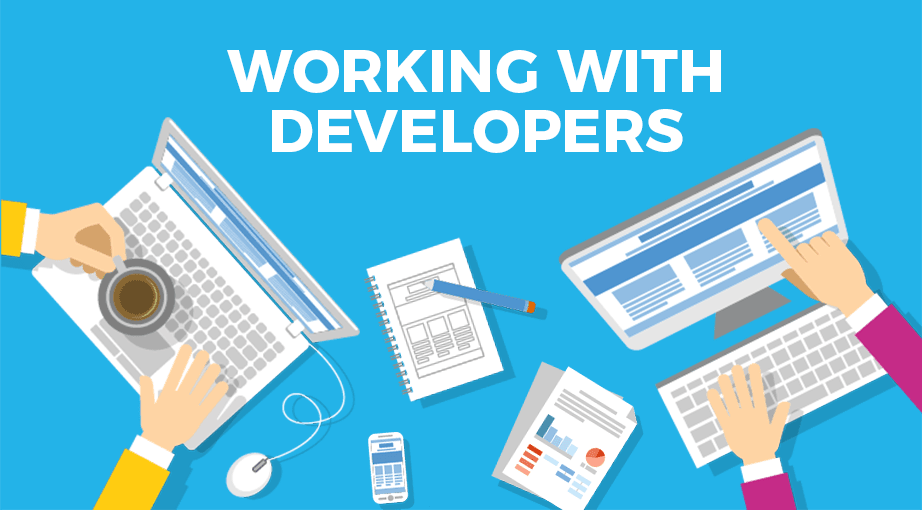
Knowing some best practices for working with website developers can save you many potential headaches, not to mention your hard-earned cash. By implementing the tips below, you can significantly improve the chance that your project is completed on time and to the standard you desire, ensuring all parties walk away from the project happy.
Whether you are planning on using a developer or building your website yourself, you will need a fast and secure hosting plan to get started. Each of our plans come with a number or website building software included, and they can all be accessed through cPanel.
1. Have A Plan For Your Website
You should know what the site will look like and what features you want before any work. You can do this by researching various websites and giving your developer a list of examples that you like and some that you’re not fond of. Going to a developer with nothing but “I want a website” often ends in disaster and can take more time to correct than making sure everybody is on the same page from the very beginning.
Make sure you list and have in writing the exact features you want on your website. If you want a contact form, social media icons, or an image gallery, you need to tell your developer that specifically. No matter how clever they may be, nobody but yourself has a clear idea of how your website should turn out.
2. Get A Contract Written Up
A contract doesn’t need to be written by a lawyer unless, of course, you want to, but it does need to be put on paper (or digitally, for that matter). The contract should outline what work is being carried out, the deadline, the price, and both parties signatures. Having a signed contract is often all that’s needed to keep your developer honest. Including a clause stating what happens if there’s a dispute can also give you a roadmap of how you rectify the problem if it does occur.
3. Keep Accounts And Domain Names In Your Name
In no case should you let your developer create a hosting account in their name or register a . AU domain with their ABN. If they are building the website for you and the domain name is for your business, then it stands to reason that it’s you who should have the legal right to the service or domain.
4. Demand Transparency From The Outset
Ask your developer if they are writing all the code from scratch and, if not, where they’re sourcing it from. There’s nothing worse than spending big $$$ on a ‘custom’ website that you later find on ThemeForest for $15, or even worse. They used a ‘drag-and-drop site builder that may limit any future customisation.
5. Don’t Pay The Full Amount Upfront
Many developers offer a discounted price for upfront total payments, and while it might sound like a bargain, this is a dangerous gamble. You should only consider paying the full price upfront if you implicitly trust the developer will complete the project and are confident they will do it to the standard you expect. Once they have all the cash, it can be challenging to work fast enough or the quality you demand.
6. Set Deadlines For Key Milestones
Break the project up into pieces and agree on a deadline for each completed phase. This is a great way to track your developer’s progress and let you know if the website build will plan.
7. Create A Pay-As-You-Go Schedule
Coupled with creating deadlines, pay the developer as the project progresses. This protects you from dumping $ 1,000’s into a project that they can’t or won’t complete and limits your risk exposure. You can also offer a bonus if they meet the work on schedule to speed up development, keeping your project on the top of their ‘to-do list’.
8. Choose A Reputable Developer
Determining if your developer is reputable or not can be achieved by looking at their portfolio of previous projects, seeing if they have a professional email address (not just a Gmail address), and finding out if are they’re registered as a business.
Doing your research can protect yourself from ‘shonky’ developers who are simply looking for a cash grab. If something about them doesn’t feel right, go with your gut feeling and look elsewhere.

